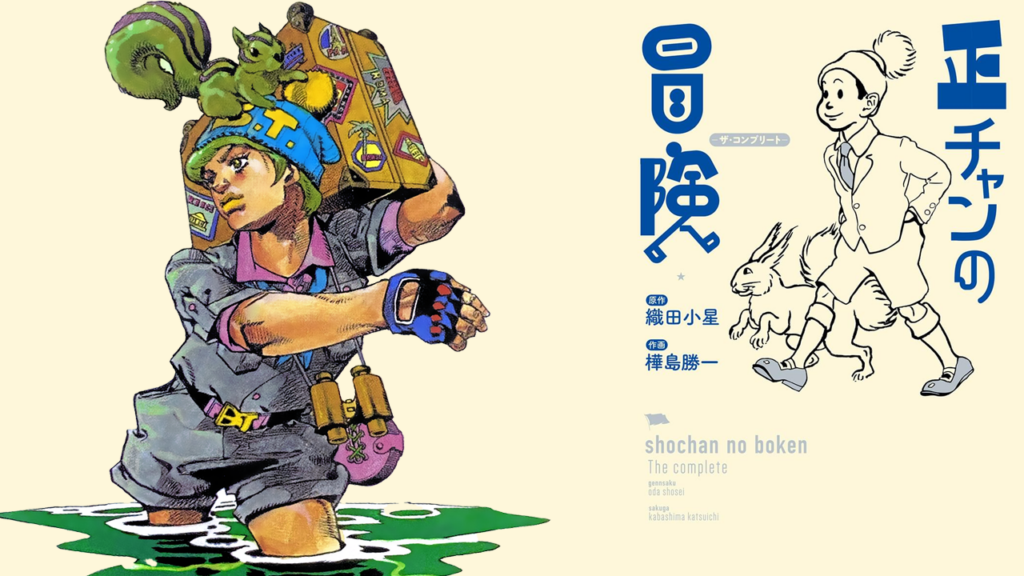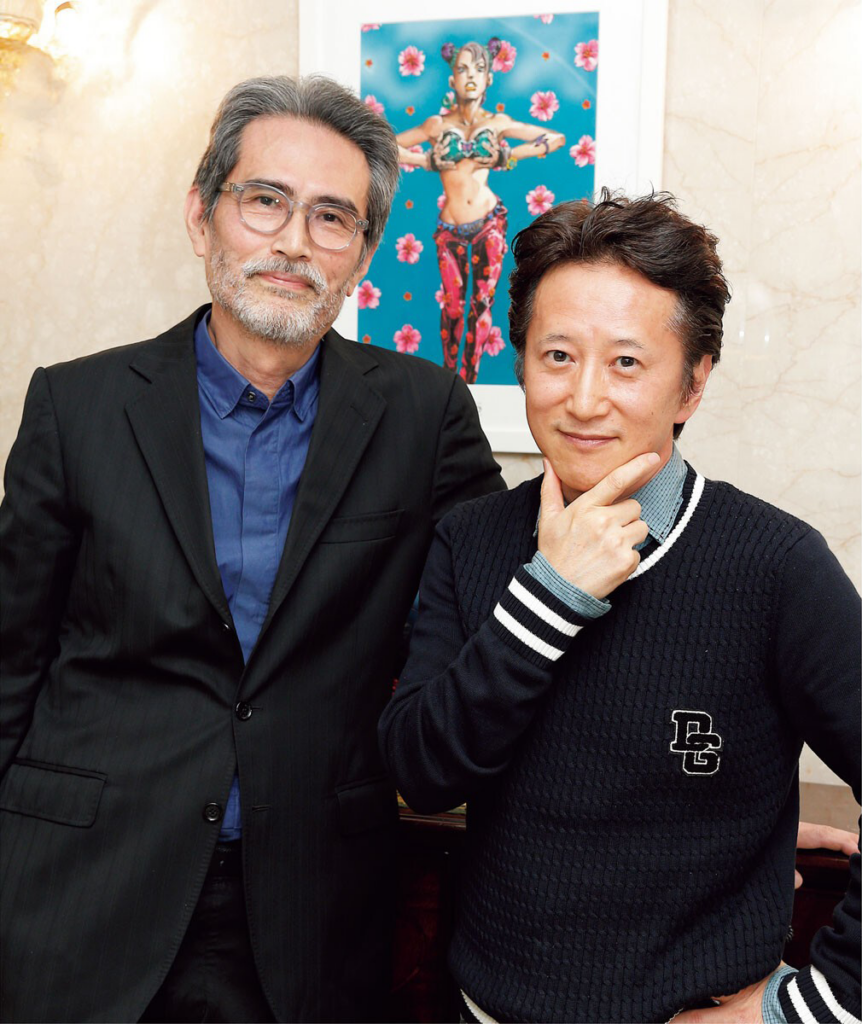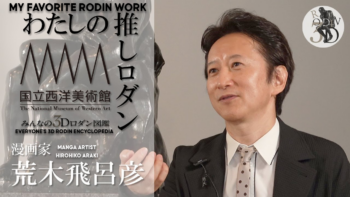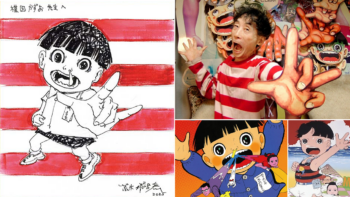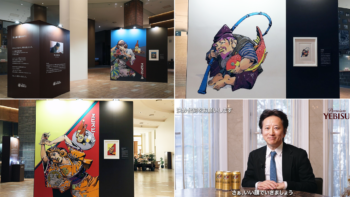The manga artist of JoJo’s Bizarre Adventure, Hirohiko ArakiHirohiko Araki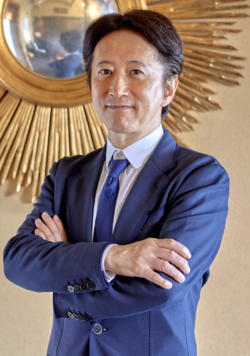 Hirohiko Araki, born Toshiyuki Araki, is a Japanese manga artist and the author of JoJo's Bizarre Adventure. He made his debut in 1980 with his one-shot Poker Under Arms, and began his professional career with the short series Cool Shock B.T., Baoh the Visitor, and Gorgeous Irene. Araki's biggest series,..., drew artwork in commemoration of the 100th anniversary of the manga Sho-chan’s Adventures (Shō-chan no Bōken). His drawing features the main character of the series, a boy named Sho-chan, and his sidekick squirrel named Risu.
Hirohiko Araki, born Toshiyuki Araki, is a Japanese manga artist and the author of JoJo's Bizarre Adventure. He made his debut in 1980 with his one-shot Poker Under Arms, and began his professional career with the short series Cool Shock B.T., Baoh the Visitor, and Gorgeous Irene. Araki's biggest series,..., drew artwork in commemoration of the 100th anniversary of the manga Sho-chan’s Adventures (Shō-chan no Bōken). His drawing features the main character of the series, a boy named Sho-chan, and his sidekick squirrel named Risu.
Sho-chan’s Adventures is a manga drawn by Katsuichi Kabashima under the pseudonym Tofujin, and written by Nobutsune Oda. The magazine Asahi Graph and newspaper Asahi Shimbun serialized the four-panel manga series from 1923 to 1926. Sho-chan and his friends visit strange countries and worlds, where they encounter bizarre fantasy creatures.
The series is notable for being the first manga to incorporate dialogue through speech bubbles.
Araki Recommends Sho-chan’s Adventures
For its 100th anniversary, the publisher viviON THOTH released a complete edition on November 22, 2023, including reprints of all 866 chapters. Araki recommends it, with his artwork featured on the book’s obi strip.
Going on an adventure with Risu. That’s the kind of thrill I dreamed of when I was a kid.
Hirohiko Araki
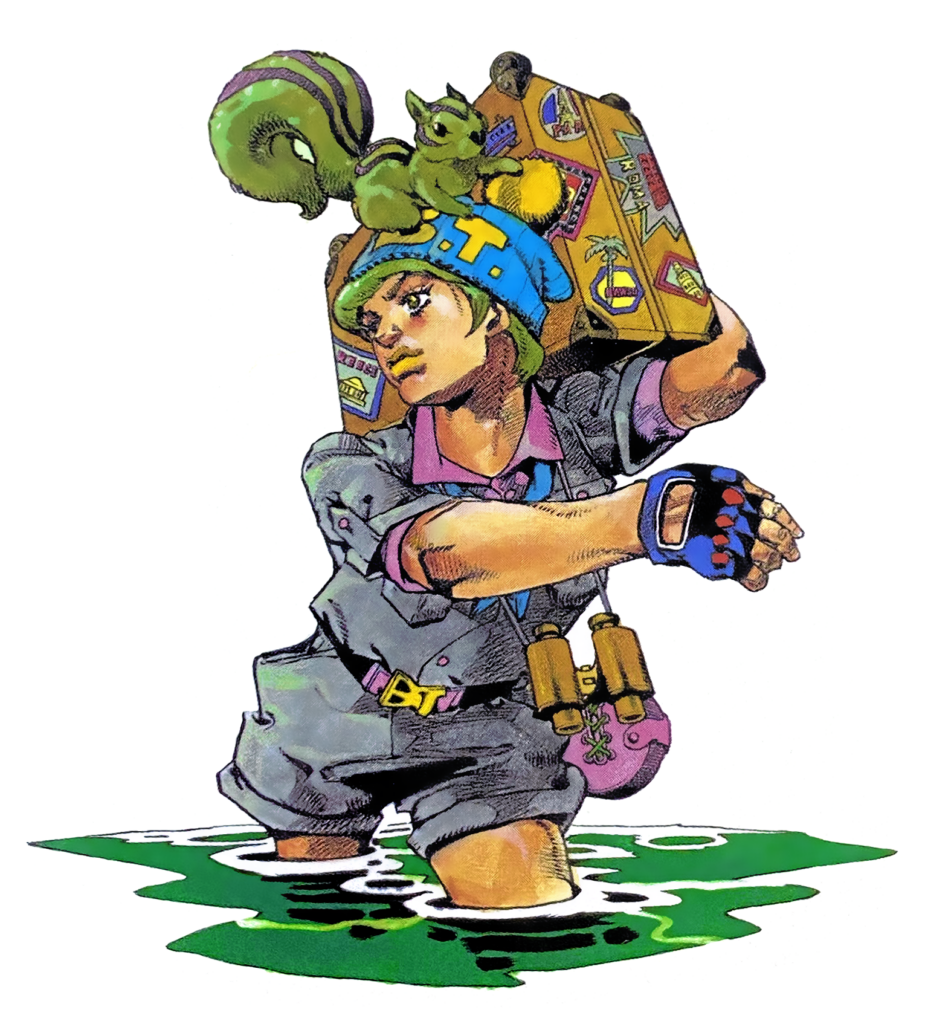
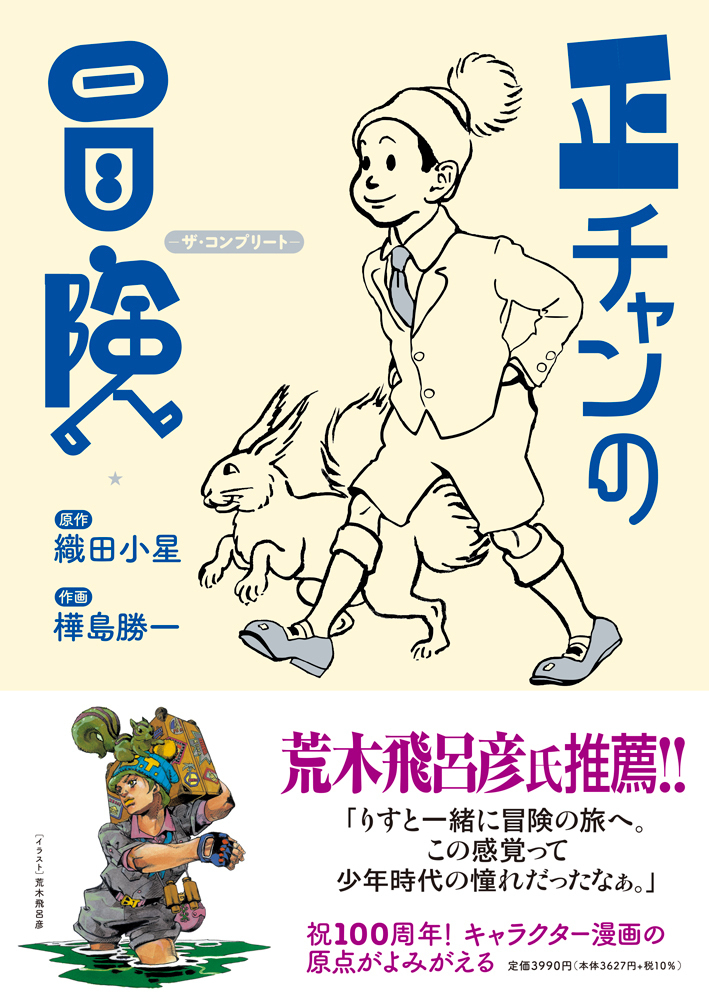
History between Araki and Kabashima
Katsuichi Kabashima passed away in 1965, but he is the grandfather of Ryosuke KabashimaRyosuke Kabashima Ryosuke Kabashima was Hirohiko Araki's first editor and was largely responsible for his growth during the first ten years of Araki's professional career as a manga artist. His involvement would last from 1979 up until the finale of Stardust Crusaders in 1992. Kabashima is currently one of Shueisha's company advisors,..., Araki’s first editor since before his debut as a manga artist. Araki has stated numerous times that JoJo’s Bizarre Adventure would not exist without Ryosuke Kabashima’s support. Kabashima encouraged Araki to avoid doing what is popular among other Weekly Shonen JumpWeekly Shonen Jump
Ryosuke Kabashima was Hirohiko Araki's first editor and was largely responsible for his growth during the first ten years of Araki's professional career as a manga artist. His involvement would last from 1979 up until the finale of Stardust Crusaders in 1992. Kabashima is currently one of Shueisha's company advisors,..., Araki’s first editor since before his debut as a manga artist. Araki has stated numerous times that JoJo’s Bizarre Adventure would not exist without Ryosuke Kabashima’s support. Kabashima encouraged Araki to avoid doing what is popular among other Weekly Shonen JumpWeekly Shonen Jump Weekly Shonen Jump is a weekly shonen manga magazine published in Japan by Shueisha under the "Jump" line of magazines. The first issue was released with a cover date of August 1, 1968, and it is still circulating. One of the longest-running manga magazines in Japan, it has a circulation... titles, encouraging him to draw what he wants to and travel to other countries.
Weekly Shonen Jump is a weekly shonen manga magazine published in Japan by Shueisha under the "Jump" line of magazines. The first issue was released with a cover date of August 1, 1968, and it is still circulating. One of the longest-running manga magazines in Japan, it has a circulation... titles, encouraging him to draw what he wants to and travel to other countries.
In addition, Ryosuke Kabashima personally advocated for Jump to publish Cool Shock B.T., as other editors disapproved of its Japanese title (Devil Boy B.T.) and eccentric content. This is likely the reason why Araki’s artwork of Sho-chan features “B.T.” on Sho-chan’s cap and belt buckle, especially since this year also marks Cool Shock B.T.‘s 40th anniversary.
When the Hirohiko Araki JoJo Exhibition: Ripples of Adventure ran in Nagasaki from January to March 2019, they also celebrated the artwork of Katsuichi Kabashima, with 34 works selected by Araki. Araki stated that when he was younger, he used Kabashima’s drawings as reference for his art. “I particularly like the paintings that depict the sea and sailing ships.”

